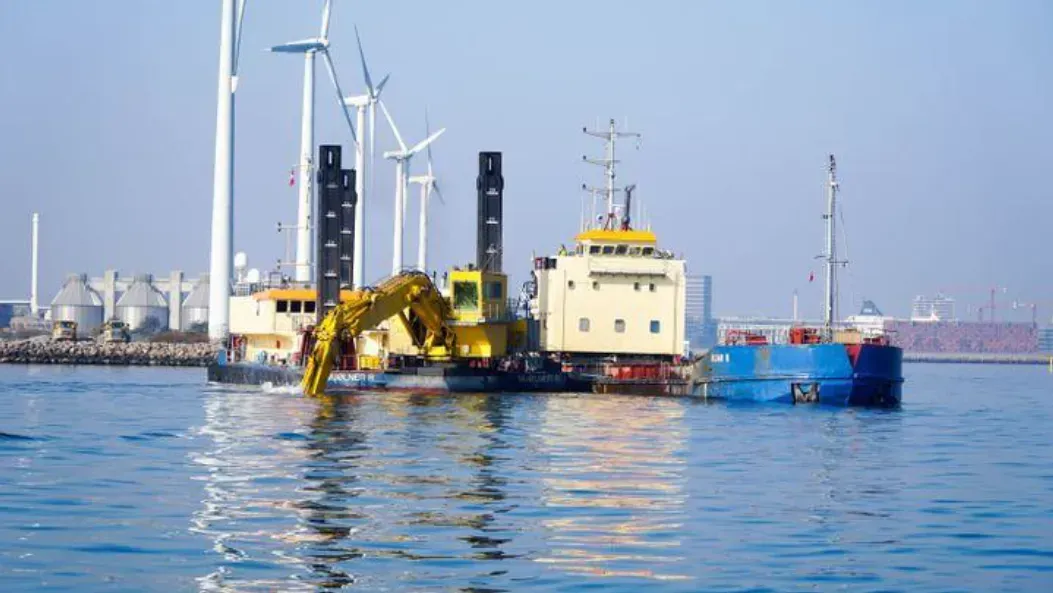Coalition Clean Baltic urges Danish authorities to stop the construction of Lynetteholm island
Coalition Clean Baltic calls to stop the Lynetteholm project that may result in environmental disaster in the Baltic Sea.

September 2023 - In 2021 the majority of the Danish Parliament adopted a Construction Act which allowed the constructor By & Havn and the Ministry of Transport to start the Lynetteholm project: an artificial peninsula in the Copenhagen harbour as a new district area in the city, that will house 35,000 residents and 35,000 workplaces. This project was approved despite Swedish criticism and without consultation of all the Baltic Sea countries.
In the same year, an Executive Order was introduced, nullifying the environmental laws in place and preventing complains. The only way for citizens, municipalities and associations to be heard is to raise a case in the national courts.
Environmental issues
The construction of this artificial island may block the flow of salt, oxygen-rich water into the Baltic Sea.
The result of the Lynetteholm project can have significant, irreversible, negative environmental consequences for the Baltic Sea. Even minimal changes in the water flow into the Baltic Sea may affect the entire marine environment of all the countries around the Baltic Sea.
Regardless of the consultation responses, the ongoing Espoo negotiations with Sweden and the Climate Movement´s lawsuit, the construction of Lynetteholm continues.
Citizens and NGOs actions to stop the project
In 2021, Coalition Clean Baltic (CCB) called to postpone the the adoption of the Lynetteholm project through a letter sent to the Danish authorities, which was also shared with the European Commissioner for the Environment, Oceans and Fisheries , as well as with Directors General of respective DG of the European Commission and the Chair of the Baltic Sea Parliamentary Conference.
In 2022 Coalition Clean Baltic (CCB) signed another letter, together with other 16 NGOs, to complain to the EU about Lynetteholm blocking water flow.
In 2023 updated information were published about the Lynetteholm project. This document contains the most updated information including those deliberations that have happened namely that:
- updates about the Danish Climate Movement´s lawsuit;
- the report of the 'professional reference group’ set by Transport Agency with four independent professors (Prof. Katarina Elofsson, Department of Environmental Science, Aarhus University; Prof. Lone Kørnøv, Department of Planning, Aalborg University; Prof. Stiig Markager, Department of Ecoscience, Aarhus University; Prof. Thorbjørn Joest Andersen, Department of Geosciences and Nature Management, University of Copenhagen) released on 5 March 2023 which states that “blocking effects are cross border and can potentially affect the entire Baltic Sea. One consideration might be to change the design of the project, so that the outermost part does not include Kongedybet”. Individual opinion of Prof. Stiig Markager is i.a. that “the calculations carried out by DHI are not sufficient to reject a significant effect on the salinity in the Baltic Sea. This effect can occur throughout the Baltic Sea and will thus affect all countries around the Baltic Sea. Furthermore, any effect on the stability of the Baltic Sea's water column will produce derivative effects that can accumulate over time and potentially affect salinity beyond the immediate effect on salt transport”. According to Prof. Markager, the implementation of the project in its current state will have significant negative impact on environmental status of the Baltic Sea, hence also constituting a violation of the EU MSFD;
- the supplemented EIA report for the project changes in the Lynetteholm project was released for public consultation until 8 May 2023;
- the completion of the Espoo Convention transboundary consultation process is unknown.
In addition, in March 2023 CCB shared its concern to the
Helsinki Commission (HELCOM) regarding the Lynetteholm project and
submitted documents to the Informal consultation session of the Helsinki Commission (IC HELCOM 1-2023). In June 2023 CCB
submitted new documents to the Informal consultation session of the Helsinki Commission (IC HOD 3-2023).
The consultation on the Lynetteholm project by all Baltic Sea countries is a legal duty incumbent on Danish authorities.
Until all affected countries and organisations are consulted we call to immediately stop the Lynetteholm project.

